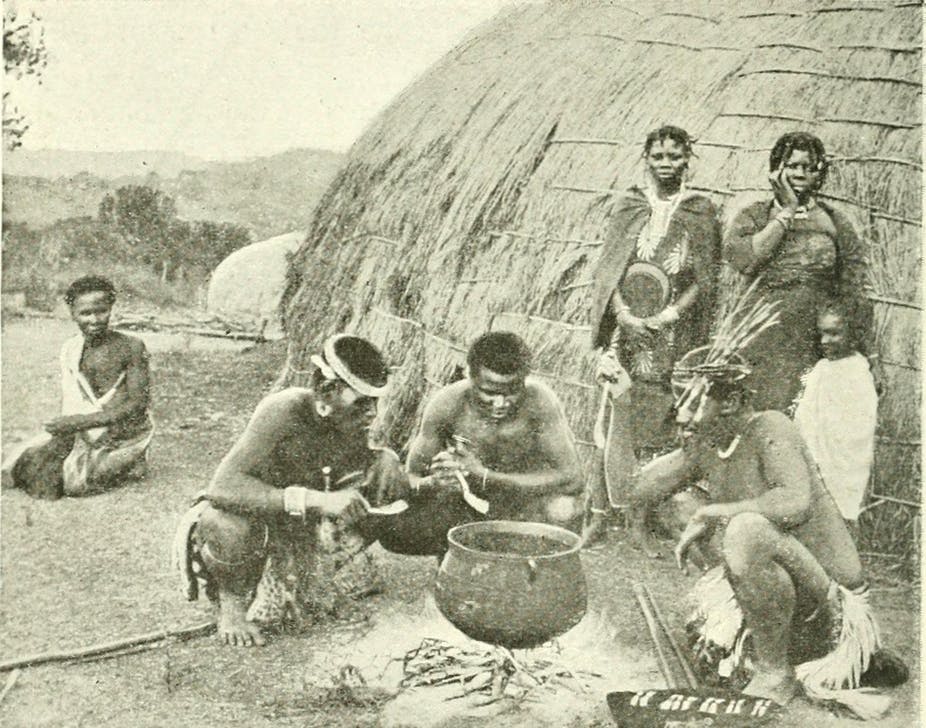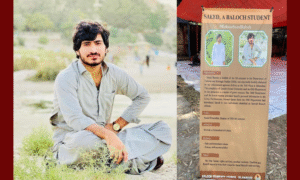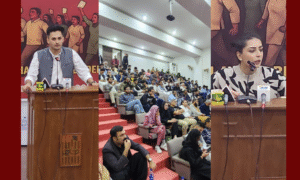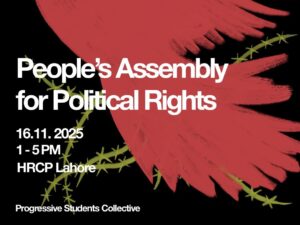Ahsan Iqbal
Culture is a very important aspect of human existence. It is our culture that gives us the power to survive in this world. It has led many nations to glory. On the other hand, power can be a beautiful thing if it is used for the betterment of humankind, but the problem is that it is often used for the manipulation of the people. The connection between culture and power has always been tricky. Culture is often used to impose hegemony on the other nations. This is particularly true for the relationship of colonisers with the colonised.
The British had a poor perception of Africa; that Africans were not civilized people and belonged to a primitive race. The British considered it their duty to ‘civilize’ the Africans. Joseph Conrad in his novel Heart of Darkness described African people as: “They were not enemies, they were not criminals, they were nothing earthly now—nothing but black shadows of disease and starvation, lying confusedly in the greenish gloom. Brought from all the recesses of the coast in all the legality of time contracts, lost in uncongenial surroundings, fed on unfamiliar food, they sickened, became inefficient, and were then allowed to crawl away and rest.”
African people for the British were just shadows, and not human beings. African writer Chinua Achebe in his article, An Image of Africa: Racism in Conrad’s ‘Heart of Darkness’ that Heart of Darkness projects the image of Africa as “the other world,” the antithesis of Europe and therefore of civilization, a place where man’s vaunted intelligence and refinement are finally mocked by triumphant bestiality. The British only had one purpose and that was to colonize Africa. They called them beasts because that was the only way they could justify their purpose. They established their cultural hegemony by the use of power. They committed atrocities and killed people just for imposing their own culture on the natives. They wanted them to adopt their culture and worldview. It was also a way to destroy the essence of African culture to create their hegemony. Achebe writes in his book Home and Exile that the people of Africa had a rich culture before the Britishers and other colonial powers destroyed it. They were bound by their traditions and their way of life was more than enough but then the white men came with ‘White man’s burden’ to make the people of Africa civilized and imposed their own culture by the use of power and destroyed their indigenous culture just to enslave them.
When there was a famine in Bengal in 1944 and the authorities wrote to Winston Churchill that people were dying on the streets and asked for the assistance of the British government but instead of helping people with grain and food, he ordered the ships in India filled with grain to come to England. He wrote rather peevishly on the margins of his letter to Indian Authorities, “Why hasn’t Gandhi died yet?” (Tharoor, Inglorious Empires). It shows us that the culture and power are connected and we have a dark history that revolves around this connection.
Colonial powers imposed their cultures in two ways of writings. First, by the British tradition or the English tradition of writing about Africa and other parts of the land like Asia. The English writing tradition had scores of books written which portrayed indigenous people as beastly and sub-humans. These books justified all the violence against the people by portraying the settlers as torch bearers of civilization. Achebe wrote about it in his book ‘Home and Exile’ that the root of the problem was that people of Africa submitted to its colonial masters and did not even protest. He wants the African writers to come up and write about the indigenous land and culture and to tell the world how they were not barbaric and in fact more civilized than their colonial masters. Ngugi Wa Thiong’o was also an African writer. He writes in his book ‘Decolonizing the mind’ that by writing about African tradition and by telling the world about their own story they could come up with something by which they could decolonize the mind of people. This imposing of culture has done more damage to the indigenous people than any other thing.
There is a famous story in which an elephant comes to a hut at night and asks the owner to allow him to stay there. The elephant at last kicks out the owner of the house and claims itself to be the owner of the house and that’s what imperial rule did. They destroyed the culture and when the people were vulnerable, they used their power to rule them for two centuries. They gave their narrative without listening to the narrative of the other side and thus destroyed the culture of Africa.
All arguments and examples that are given above provide us with enough data to support the fact that the culture and power when connected or intermingled together generally have a very catastrophic effect on the course of history. Even the character Kurtz in Conrad’s “Heart of Darkness” said the words ‘Horror’ ‘Horror’ because he was the one who lived in the jungles of Africa for Ivory trade for a European company and saw how the people so simple were manipulated for imperial rule’s benefit. This connection resulted in the killings of Africans and enslavement of African people. Culture is a very sacred thing as it gives you a way to live life but it shouldn’t be entangled with power. History has proven that these things should be kept separate and not connected because that proves to be catastrophic.
The Students’ Herald News Desk focuses on reporting the latest news regarding student politics and campus updates to you.
The News Desk can be reached at admin@thestudentsherald.com




